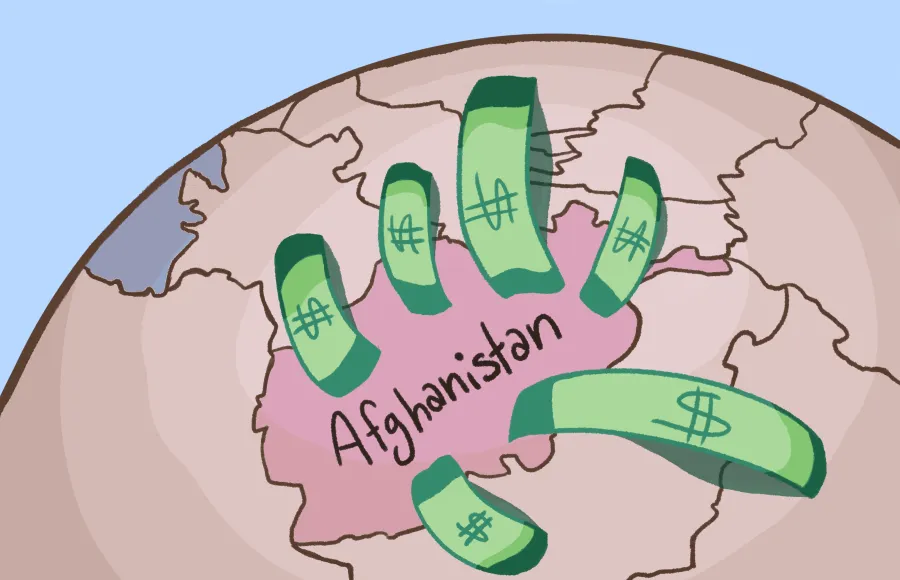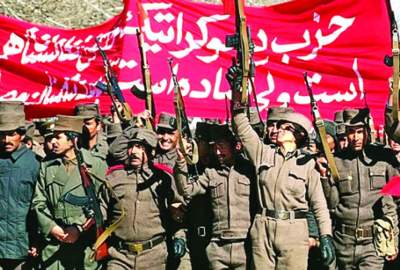Achieving peace in Afghanistan is a complex task due to the overlapping international interests that have pushed the country to the forefront of geopolitical rivalries, including one between the United States and Iran. The consensus of regional countries involved both directly and indirectly in the conflict is essential to achieving enduring peace — anything less will only transfer the conflict to different parties, resulting in the continuation of war. The negative economic impact of COVID-19 has created a common ground for regional players to work together for direly needed economic recovery and growth. It is time to transform the economic pressure into an opportunity for economic cooperation and regional integration that can have a boosting effect on the Afghan peace process.
Publish dateSaturday 15 August 2020 - 15:11
Story Code : 216784
The sudden spread of COVID-19 caught policymakers worldwide off guard, making it difficult for some Central and South Asian countries to develop strategies for combating the backbreaking economic impact of the disease. As a result, the countries that were already experiencing economic and financial challenges further slipped into deep recessions. Pakistan has a rising public debt that is 87.5% of its gross domestic product and a growing population where 24.3% live under the poverty line. This, along with several other worsening economic indicators, such as its current inflation rate of 11.8%, all signify the need for urgent action.
Iran has similarly been hit hard by both COVID-19 and U.S. economic sanctions, and India’s slowing economic growth and increasing demand for energy necessitate the need for growth-oriented policies and strategies. Energy-rich Central Asian countries — whose economies have not grown much since their independence from the Soviet Union — are struggling to liberalize their commodity-based economies, develop soft infrastructure and expand their economies.
It is beyond doubt that economic integration and enhanced connectivity of South and Central Asia can result in propitious economic conditions for all countries in the region. Enhancing regional connectivity, which has been weak or nonexistent due to the long war in Afghanistan, is essential for realizing potential economic benefits. Economic growth depends on connectivity, and connectivity is not possible without a stable and peaceful Afghanistan.
COVID-19 may represent an opportunity to encourage connectivity through a regional economic program. This program would connect Pakistan, India, Tajikistan, Uzbekistan, Turkmenistan, Kazakhstan and Kyrgyzstan through large transnational projects. Afghanistan, because of its geographical location, will play a key role in such connectivity by providing safe routes for trade and other economic exchanges, inducing cooperation in peace efforts in Afghanistan.
As the Afghan peace effort progresses, a concurrent multinational regional economic program supported by multilateral development agencies and investment contributions from the countries involved will drive regional integration, enhanced trade and greater investment opportunities. Transnational projects similar to CASA-1000, the Central Asia-South Asia power project, that transfer electricity from Central Asia to Pakistan and India through Afghanistan will deflect the focus of the region from conflict to collaboration.
Pressured by deteriorating economies and demand for action by citizens, regional players will be compelled by such a program to cooperate and negotiate. The program will provide a framework for economic connectivity, fostering cross-national cooperation that not only will have a positive impact on the peace process in Afghanistan, but also could be instrumental in sustaining it.
Enduring peace in Afghanistan is not possible if the population, including Taliban fighters, is not provided with a livelihood alternative. The Taliban have gained strength over recent years, not because of their religious views, but because of the availability of a largely destitute and deprived pool of rural population — one that has not benefited from the billions of dollars the international community has poured into the country. Living in meager and lawless conditions with no alternatives to livelihood, many joined fighting groups to simply survive.
According to the World Bank’s new projections, more than 71% of Afghans will fall below the poverty line this year. Access to a proper justice system, schooling and effective governance is either very limited or nonexistent, creating a perfect recruiting pool of people for terrorist and government-opposed groups. A U.S.-Taliban peace agreement and a possible Afghan government and Taliban peace deal will only translate into long-term stability and sustained peace if Taliban fighters and the poverty-stricken Afghan population are provided with economic opportunities that enable them to earn a livelihood for their families. The regional economic program will provide livelihood opportunities for Afghans as the multinational projects are implemented.
The peace agreement among the Taliban, the United States and the Afghan government will not lead to stability in Afghanistan unless all regional countries and groups reach an understanding and consensus. The worsening economic conditions of the region because of COVID-19 and the growing need for recovery and economic growth are an opportunity to attain consensus by connecting the region’s countries through a conducive multinational regional economic program that focuses on economic integration and development, supported by multilateral development agencies. The economic connection will divert attention from war to economic effort in the region, having a fortifying effect on the Afghan peace process and its future sustainability.
Due to weary political pressure in Washington, the United States is rushing to get out of Afghanistan, without resolving the conflict and leaving the nation to the mercy of regional countries. Regional countries such as Pakistan, which has supported the Taliban all these years, will once again turn Afghanistan into a battleground after the U.S. withdrawal, creating a breeding ground for terrorist groups that are already on standby in the region.
Current U.S. peace efforts are important, but not enough. In addition to strengthening government institutions, Afghanistan must be looked at in the regional spectrum, and all possible ways must be explored to sustain peace by securing commitments of support from regional countries through economic incentives. A regional economic program will address the needs of regional players, driving them toward supporting peace instead of fighting.
Gul Maqsood Sabit teaches business at Ohlone College. He is the former deputy minister of finance in the Afghan government and the former president and CEO of Pashtany Bank.
Iran has similarly been hit hard by both COVID-19 and U.S. economic sanctions, and India’s slowing economic growth and increasing demand for energy necessitate the need for growth-oriented policies and strategies. Energy-rich Central Asian countries — whose economies have not grown much since their independence from the Soviet Union — are struggling to liberalize their commodity-based economies, develop soft infrastructure and expand their economies.
It is beyond doubt that economic integration and enhanced connectivity of South and Central Asia can result in propitious economic conditions for all countries in the region. Enhancing regional connectivity, which has been weak or nonexistent due to the long war in Afghanistan, is essential for realizing potential economic benefits. Economic growth depends on connectivity, and connectivity is not possible without a stable and peaceful Afghanistan.
COVID-19 may represent an opportunity to encourage connectivity through a regional economic program. This program would connect Pakistan, India, Tajikistan, Uzbekistan, Turkmenistan, Kazakhstan and Kyrgyzstan through large transnational projects. Afghanistan, because of its geographical location, will play a key role in such connectivity by providing safe routes for trade and other economic exchanges, inducing cooperation in peace efforts in Afghanistan.
As the Afghan peace effort progresses, a concurrent multinational regional economic program supported by multilateral development agencies and investment contributions from the countries involved will drive regional integration, enhanced trade and greater investment opportunities. Transnational projects similar to CASA-1000, the Central Asia-South Asia power project, that transfer electricity from Central Asia to Pakistan and India through Afghanistan will deflect the focus of the region from conflict to collaboration.
Pressured by deteriorating economies and demand for action by citizens, regional players will be compelled by such a program to cooperate and negotiate. The program will provide a framework for economic connectivity, fostering cross-national cooperation that not only will have a positive impact on the peace process in Afghanistan, but also could be instrumental in sustaining it.
Enduring peace in Afghanistan is not possible if the population, including Taliban fighters, is not provided with a livelihood alternative. The Taliban have gained strength over recent years, not because of their religious views, but because of the availability of a largely destitute and deprived pool of rural population — one that has not benefited from the billions of dollars the international community has poured into the country. Living in meager and lawless conditions with no alternatives to livelihood, many joined fighting groups to simply survive.
According to the World Bank’s new projections, more than 71% of Afghans will fall below the poverty line this year. Access to a proper justice system, schooling and effective governance is either very limited or nonexistent, creating a perfect recruiting pool of people for terrorist and government-opposed groups. A U.S.-Taliban peace agreement and a possible Afghan government and Taliban peace deal will only translate into long-term stability and sustained peace if Taliban fighters and the poverty-stricken Afghan population are provided with economic opportunities that enable them to earn a livelihood for their families. The regional economic program will provide livelihood opportunities for Afghans as the multinational projects are implemented.
The peace agreement among the Taliban, the United States and the Afghan government will not lead to stability in Afghanistan unless all regional countries and groups reach an understanding and consensus. The worsening economic conditions of the region because of COVID-19 and the growing need for recovery and economic growth are an opportunity to attain consensus by connecting the region’s countries through a conducive multinational regional economic program that focuses on economic integration and development, supported by multilateral development agencies. The economic connection will divert attention from war to economic effort in the region, having a fortifying effect on the Afghan peace process and its future sustainability.
Due to weary political pressure in Washington, the United States is rushing to get out of Afghanistan, without resolving the conflict and leaving the nation to the mercy of regional countries. Regional countries such as Pakistan, which has supported the Taliban all these years, will once again turn Afghanistan into a battleground after the U.S. withdrawal, creating a breeding ground for terrorist groups that are already on standby in the region.
Current U.S. peace efforts are important, but not enough. In addition to strengthening government institutions, Afghanistan must be looked at in the regional spectrum, and all possible ways must be explored to sustain peace by securing commitments of support from regional countries through economic incentives. A regional economic program will address the needs of regional players, driving them toward supporting peace instead of fighting.
Gul Maqsood Sabit teaches business at Ohlone College. He is the former deputy minister of finance in the Afghan government and the former president and CEO of Pashtany Bank.
Source : Afghan Voice Agency(AVA)
avapress.com/vdch6-nik23nzqd.01t2.html
Tags
Top hits







